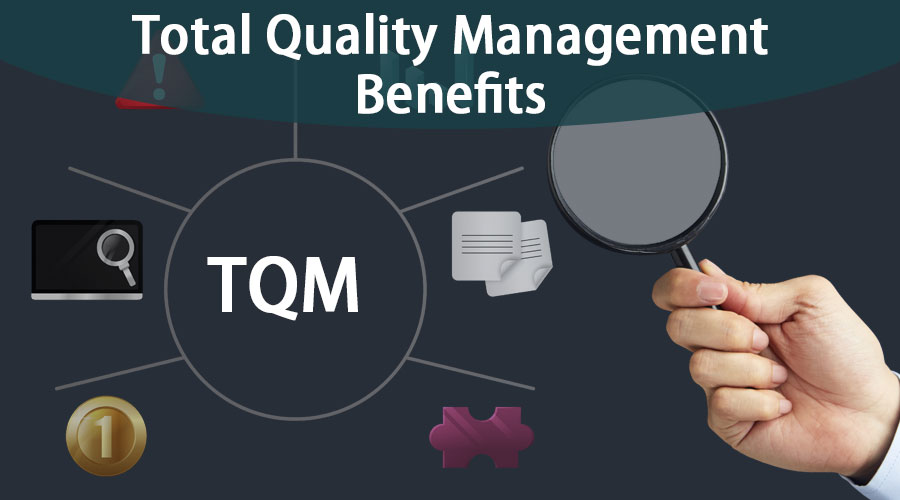
The ever-increasing competition challenges the organisation to meet the ever-increasing consumer market demands. TQM practices help understand market trends and competition to develop effective strategies for overcoming them. The first step is to monitor the issues in the system and define a vision and mission to eliminate the problems, leading to enhanced improvements. 86% of global IT leaders in a recent IDG survey find it very, or extremely, challenging to optimize their IT resources to meet changing business demands. However, speed can only get an organization so far without the added component of quality.
Improved Supplier Partnerships
By regularly assessing quality and making adjustments, the organization can adapt to new challenges, meet evolving customer needs, and maintain a trajectory of improvement. After the war, other American quality theorists, including Deming, who would achieve hero status in Japan, advised Japanese industry on how to improve processes and output to rebuild their war-shattered economy. As early as 1945, such visionaries as electrical engineer Homer Sarasohn spoke about controlling variation and monitoring process to produce better deliverables. As a result, in the 1950s, quality became the byword for Japanese manufacturing.
- TQM is an ongoing process that requires commitment and continuous improvement.
- Ultimately, the Benefits of Total Quality Management promote innovation, enhance operational efficiency, and support sustainable success in today’s highly competitive environment.
- TQM requires a strong commitment from leadership and a clear direction for the organization.
- These teams are like small squads assigned specific missions to find and fix problems.
D. Reduced costs and increased profitability
Further, TQM also contributes to behavioral changes in the workplace through employee engagement and encouragement in self-development. U.S. producers throughout the 1970s and 1980s adopted quality and productivity methods, including TQM, to better compete in the increasingly global marketplace. In 2008, Tata Steel created the Performance Improvement Committee to drive continuous performance improvement. Performance Improvement Groups were established for iron making, steel making, flat rolling, long rolling, maintenance and more. Work smarter, faster, and better together with Propel – a reimagined way to transform your business, optimize customer experiences, and achieve product success. A shortcut to robust TQM is to invest in the tools and systems that help bring a collaborative culture of quality together – like Qualio’s QMS software.
Principle #1: Customer focus
Put more simply, TQM is a management system where a company achieves organizational advancement through a commitment to customer requirements. TQM emphasizes the need for organizations to be flexible to change without and adaptable in order to meet changing customer needs and market conditions. This can help organizations to respond more quickly and effectively to changes in the business environment.
By championing customer satisfaction and empowering teams, TQM ignites innovation and weaves a culture of excellence throughout an organisation. Total Quality Management enables workers of all levels to stay engaged through regular self-improvement, enabling a sense of responsibility along with ownership. This method enhances job satisfaction and improves the employees’ morale, keeping them engaged in organizational goals.
Customer service vs technical support: What’s the difference?

The idea of total quality management originated in the manufacturing sector, but the principles of TQM can really be used by any type of company. Because it focuses on long-term value and impact versus short-term wins, it is a great way for organizations to implement systemic change as they mature. One of the top examples of manufacturing companies that have successfully implemented TQM and kaizen principles is Toyota. Originally, Toyota adopted a somewhat related practice called statistical quality control (SQC) in 1949. They iterated on this in 1951 with the launch of the Creative Idea Suggest System which was loosely based on a suggestion system used by their competitor, Ford.
Congress established the Federal Quality Institute in 1988 to highlight the need for quality management in business and reward organizations for successful implementations. One of the key principles of TQM is continuous improvement, which encourages organizations to continuously monitor and improve their processes and systems. This can lead to improvements in efficiency and productivity by identifying and eliminating waste, such as excess inventory, long lead times, or unnecessary steps in a process. One of the key principles of TQM is customer-centricity, which means that the organization focuses on understanding and meeting the needs and expectations of its customers.
Total quality management (TQM) describes a management system wherein a company attains organizational advancement through a commitment to customer requirements. A company meets those requirements when it empowers every employee in every department to maintain high standards and strive for continuous improvement. Total quality management is the predecessor of many quality management systems, such as Six Sigma, Lean, and ISO.
Unite your marketing and development teams with dynamic collaboration, concurrent workflows, and data continuity throughout the entire product lifecycle. There’s no single way to do total quality management, and examples of good TQM can be seen in a range of industries and disciplines. For IT organizations, the need to constantly evolve and improve upon their offerings is even more necessary. This reality gave rise to the utilization of business management methods such as Agile, Lean, and DevOps.










